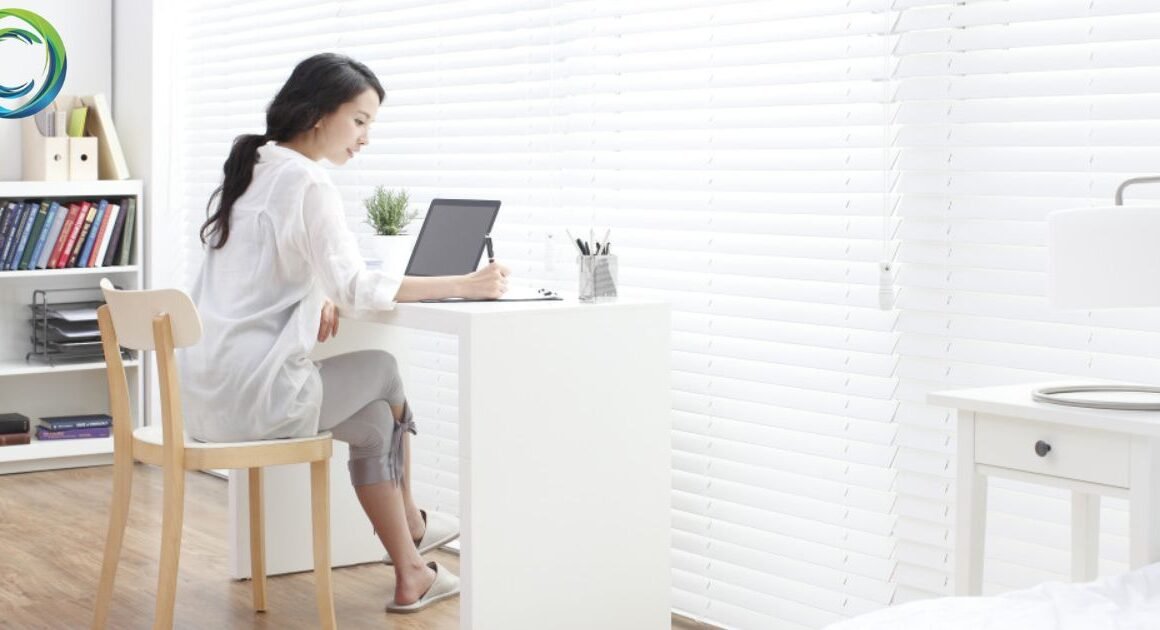Resting is one of Relaxation Techniques to Improve Your Sleep Quality foundation stones that needs a lot of attention, but is not given that attention these days due to the fast pace of life. It also fights diseases and helps improve physical fitness and sleep, memory and mood, and the immune system.
Sleep is the time when the body is repairing itself and consolidating memories as well as preparing energy for the subsequent day. If we do not get enough or good quality sleep, our bodies and brains do not work as efficiently as they should.
Lack of sleep or even feeling tired after waking up means that the person feeling so will easily be irritable or have issues concentrating. Lack of sleep is associated with many diseases, reduced immune function, high stress levels and increased probability of heart disease and diabetes.
Understanding Sleep Quality
What is Sleep Quality?
Sleep quality is the quality of your sleep and does not necessarily mean the duration you take to sleep. It means getting a good night’s sleep a few times that would make one consider sleep to be the most natural thing in the world. Inadequate sleep deprives you of energy and alertness regardless of the number of hours of sleep you get.
Factors Affecting Sleep Quality
Stress is one of the prime causes of no relaxation and disturbance in sleep. This is therefore reasoned by sleep hygiene aspects such as inadequate sleep hours, inconsistent sleep schedules and late use of electronic devices. It also has to do with nutrition—being full or consuming coffee in the evening will make you stay awake.
Why Quality Sleep Matters
Your sleeping environment also counts too. A bright light, loud noise or uncomfortable temperature, can disrupt your sleep if you are in that room. Traditional parameters that affect the ability to go to sleep, or have a restorative night’s rest include lack of exercise, emotional stress and other such aspects of one’s lifestyle.
Signs of Poor Sleep Quality
Some are tired and irritable, while they are unable to pay attention to their tasks mid morning or mid morning. For instance, if you wake up in the morning feeling so weak, or find it difficult to focus, then your sleep is likely to have been interrupted. Lack of sleep is also known to cause emotional exhaustion making it difficult for you to attain your best form.
The Role of Relaxation in Better Sleep
How Relaxation Affects Sleep
- Relaxation in turn reduces cortisol levels, which is a stress hormone and in return the body prepares for sleep for Relaxation Techniques
- The results of a reduction in cortisol concentrations are informing the brain to proceed to the sleep period to enable sleep.
- When the body relaxes the body clock is set and therefore it is easy to sleep and also remain asleep.
The Benefits of Relaxation Techniques
- Correct relaxation exercises help to reduce pressure on the mind and the body as well.
- Techniques such as breathing and meditation are effective in creating a relaxed atmosphere, and therefore makes you relax.
- When the body is relaxed, sleep onset is rapid and the quality of the sleep that you get is much better..
Activation of the Parasympathetic Nervous System
Relaxation stimulates the parasympathetic division of the electrical sensor, the body system referred to as ‘rest and digest in Relaxation Techniques
This system decreases the heart beat and blood pressure thus prepares the body for sleep.
Through the process of relaxation, the nervous system gets down and thereby promotes the environment for sleep.
Impact on Stress and Anxiety
- Stress and anxiety can be said to be the leading causes of sleeplessness.
- Relaxation prevents these conditions because it reduces thoughts that cause anxiety, as well as physical stress signs.
- Such activities as deep breathing or mindfulness can help control emotions and get a better night’s rest.
Improving Sleep with Relaxation Techniques
- The easy exercises when done before sleeping also give the body a signal that it is time to relax.
- Measures like guided fantasy or music therapy may help in decreasing the anxiety level before the night Relaxation Techniques
- By practicing relaxation regularly, a patient can prevent types of insomnia and obtain profound sleep at night.
What is PMR?
- PMR is a relaxation procedure where the patient tenses, then relaxes muscles in different parts of the body.
- PMR is A simple process intended for muscular relaxation and tension minimization, established by Dr. Edmund Jacobson in the late 1920s.
- PMR involves clenching muscles for a few seconds and then relaxing them and this assists the body to relax.
How PMR Helps Improve Sleep
- Contracting and relaxing muscles decrease physical tension.
- This relief of tension produces a relaxation response that helps to also soothe the body and its pace preparing for sleep for Relaxation Techniques
- The blunting of nerve impulses also causes the muscles to relax, making the body to achieve better digitized sleep patterns.
Step-by-Step Guide to PMR
- Start with your feet: Bend your feet as tight as you can for 5-10 seconds, then release.
- Go down to your legs, squeeze them for about five-ten seconds, then relax them.
- Go on with the abdomen, arms and hand. You need to tighten and relax them as you were doing with your back for Relaxation Techniques
- Then with your neck and face, giving all those muscles a firm squeeze to make them relax.
- These exercises should be done before sleep for about 15 to 20 minutes
Scientific Evidence
- A number of studies have been done to demonstrate that PMR can be useful in the reduction of insomnia, and the enhancement of other aspects of sleep.
- Research shows that it may decrease the levels of anxiety and therefore be used to soothe the mind before going to sleep for Relaxation Techniques
- PMR has been found to help increase the length of sleep and consequently the quality of sleep, thus is another effective tool for use in addressing sleep related problems
Deep Breathing Exercises
The Science Behind Deep Breathing
- Breathing, then, exercises the parasympathetic nervous system which is the calming system of the body for Relaxation Techniques
- It slows the heartbeat and also lowers stress thus conditioning the body for sleep.
- This often enables the mind to promptly shift from the stress of the day back into a relaxed mode
Benefits of Deep Breathing for Sleep
- Calm breathing releases another important hormone called relaxation response which has a reducing effect on stress in the body for Relaxation Techniques
- This is greatly helpful in decreasing tension and anxiety which is disruptive to relaxation and sleep.
- That is why deep breathing is effective in achieving sooner and having a better quality sleep since it triggers relaxation.
Types of Breathing Techniques for Sleep
- 4-7-8 Method: Breathe in through the nose to the count of ‘four’, hold your breath for ‘seven’ and breathe out from your mouth for ‘eight’.
- Diaphragmatic Breathing: Try to pay attention to the breaths going to your abdomen rather than your chest. This helps to avoid short and quick breathing and brings about deeper Relaxation Techniques.
How to Practice Deep Breathing Before Bed
- A good and natural setting would be finding a comfortable and quiet location to sit or lie down on.
- Close your eyes and try to concentrate on your breath, breathe slowly and deeply and then breathe out.
- Perform cough-considered deep breathing exercise any time of day or before going to bed for about five to ten minutes.
Guided Meditation and Visualization
What is Guided Meditation?
- There is also listening to guidelines or recordings aimed at calming the client, focusing on their words and breathing for Relaxation Techniques
- It occasionally contains music, or voices instructing you how to relax.
- Meditation involves thinking of something in a particular manner and calms the mind, relieves stress and allows the body to get ready for a restful sleep.
The Benefits of Meditation for Sleep
- Relaxing the mind is quite easy once one begins practicing meditation and thus limits contact with daily stress.
- This helps lower the levels of anxiety and slows down the thinking process to enable the mind to rest before night.
- Another benefit of meditation is sleep quality, its ability to ease the process of getting to sleep and increasing time of rest.
Visualization Techniques
- Some of traditional coping strategies include; visualization; that is picturing a series of events which would help in making an individual less anxious.
- Usually, something like a beach, nature, or a quiet place people usually pass by most often for Relaxation Techniques
- The use of this method gently relaxes the mind and body and prepares one for a good sleep at night.
Popular Apps for Guided Meditation
- It’s worth mentioning that most popular meditation apps – such as Calm, Headspace, and Insight Timer – have sleep-focused content.
- These apps have exercises, breathing techniques and soothing sounds to help the user get better sleep.
- Try to use them daily in order to remain loyal to the scheduled meditation time right before going to bed.
Aromatherapy and Relaxing Scents
The Role of Aromatherapy in Sleep
- Aromatherapy employs the utilization of fragrance substances which activates the body relaxation response for Relaxation Techniques
- Things that are associated with smell such as lavender, chamomile, eucalyptus and so on have been labelled to have what we refer to as sleep-inducing hormones.
- These scents can calm the brain so that a person can sleep easier, within this list there are several scents.
Essential Oils for Sleep
- Lavender: seriously, its usage is associated with calming down and sleep.
- Bergamot: Reduces anxious feelings and calms the spirit, contributing to better sleep.
- Sandalwood: Moisturizing and relaxing, good for the mind prior to sleep.
How to Use Aromatherapy for Sleep
- Place a good essential oil diffuser to put scents that calm you in the room.
- Simply spray a few drops of essential oil to your pillow or sleep mask for a good sleep environment for Relaxation Techniques
- Some of these points involve the use of essential oils, and there will be variations depending on the individual.
Conclusion
Another functional tissue of relaxation methodologies is emphasized in achieving the goal to enhance the quality of slumber and general wellbeing. Healthy management techniques such as PMR, deep breathing, guided meditation, and aromatherapy can go a long way in managing stress, anxiety, and physical tension all of which hinder sleep in a big way for Relaxation Techniques
These natural techniques assist in waking up what is referred as the relaxation response which enhances sleep and health.
Following this example will let you try different things giving the result for further successful techniques.
Sustained essential oils for instance, to have a relaxed environment or modeling and mimicking for instance, to eradicate all the things that roam in your mind can be beneficial if done without failure and often
FAQs
1. How do relaxation techniques help improve sleep?
Lifestyle practices reduce stress and anxiety, help in calming nerves and bring the body and mind into a state of sleep for Relaxation Techniques
2. How long should I practice Progressive Muscle Relaxation (PMR)?
PMR should be performed for 15-20 minutes before going to bed during which you contract and relax different muscles of your body
3. What is the best breathing technique for sleep?
The 4-7-8 method is very efficient; inhale for four seconds, hold the breath for seven seconds, and exhale during the next eight seconds for Relaxation Techniques




3 thoughts on ““The Best 10 Relaxation Techniques to Improve Your Sleep Quality”